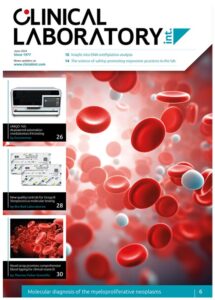Protein may trigger cancer cell’s metabolism
Research led by Maria Clara Franco of the Burnett School of Biomedical Sciences has implications for the treatment of cancer and neurodegenerative diseases.
New research from the University of Central Florida has shed light on the workings of a particular protein found in the human body that could have future implications for the treatment of cancer and neurodegenerative conditions.
Previous research by Maria C. Franco and Alvaro Estevez of the Burnett School of Biomedical Sciences at UCF’s College of Medicine showed that a modified version of a protein known as “heat shock protein 90” or Hsp90 is a trigger for killing cells in the nervous system in neurodegenerative disorders.
Now, Franco’s latest findings show that Hsp90 doesn’t treat all cells the same. In fact, the same protein that kills some cells may help cancer cells.
“We have found a protein that is modified only in pathological conditions,” said Franco, an assistant scientist at the Burnett School who led the research team. “In the nervous system, it is toxic to the cells that are affected by neurodegenerative diseases, while in tumour cells it may actually be acting as a pro-survival agent. In both cases, targeting this oxidized protein may be a potential therapeutic alternative.”
Hsp90 is one of the most studied proteins in terms of potential cancer-fighting drugs, but progress has been slow. Franco’s work provides more clarity on the complex nature of the protein’s impact on cells.
Her research team discovered that a nitration of Hsp90 limits oxygen to the cell’s mitochondria, decreasing its energy production. It sounds like a death knell for the cell, but the reduction of oxygen consumption may actually help the cancerous cells by increasing their resistance to hypoxia since these cells rely on other energy sources.
Franco has been studying the role of Hsp90 and other oxidized proteins in the regulation of cellular metabolism for the past eight years, with the goal of identifying new targets for drugs to combat tumour cells. She is eager to find ways to combat tumour cells while keeping healthy cells intact. University of Central Florida


